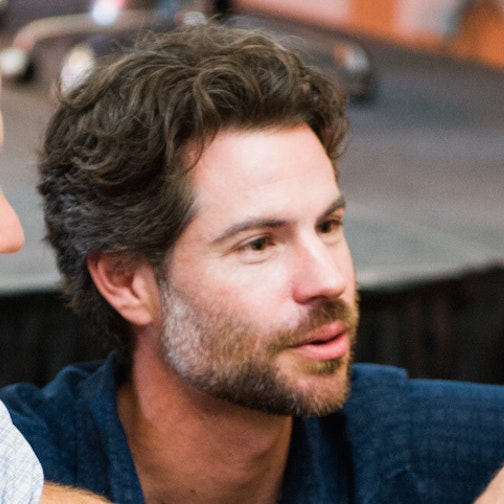An Ecomodernist Manifesto
From the Death of Environmentalism to the Birth of Ecomodernism
-
-
Share
-
Share via Twitter -
Share via Facebook -
Share via Email
-
Ten years ago the two of us wrote a controversial essay arguing that inaction on climate change required rethinking everything we thought we knew. Our assumptions had us defining the problem and solutions too narrowly. Too much negativism was turning people off. We needed the death of environmentalism so that a new and more expansive ecological politics could be born.
In the decade that followed, we discovered a whole world of researchers, scholars, and writers who were leveling similar critiques as ours. Constructing a new ecological politics required first that we deconstruct the old politics. Together with our Senior Fellows and other friends and allies, we have done a lot of critical analysis of the old environmental paradigm over the past 10 years.
From that, a new and relatively coherent way of thinking about energy and the environment has gradually emerged. This week, a group of 18 environmental scientists, activists, and scholars, including the two of us, coauthored An Ecomodernist Manifesto, a 25-page essay that can be downloaded or read online. The manifesto offers an affirmative and optimistic vision for a future in which we can have universal human development, freedom, and more nature through continued technological and social modernization.
The manifesto affirms the traditional environmentalist view that we should endeavor to shrink the human footprint to leave more Earth for nature. But it breaks from the idea that our goal should be harmonizing society with nature. Instead, the authors argue, our goal should be to increasingly "de-couple" human development from natural resource use.
Intensifying many human activities — particularly farming, energy extraction, forestry, and settlement — so that they use less land and interfere less with the natural world is the key to decoupling human development from environmental impacts. These socioeconomic and technological processes are central to economic modernization and environmental protection. Together they allow people to mitigate climate change, to spare nature, and to alleviate global poverty.
As Eduardo Porter notes in today's New York Times, the ecomodernist vision speaks to the aspirations of poor and developing countries and offers a realistic way of saving more nature in tropical countries:
If billions of impoverished humans are not offered a shot at genuine development, the environment will not be saved. And that requires not just help in financing low-carbon energy sources, but also a lot of new energy, period. Offering a solar panel for every thatched roof is not going to cut it.
“We shouldn’t be talking about 10 villages that got power for a light bulb,” said Joyashree Roy, a professor of economics at Jadavpur University in India who was among the leaders of the Intergovernmental Panel on Climate Change that won the 2007 Nobel Peace Prize.
“What we should be talking about,” she said, “is how the village got a power connection for a cold storage facility or an industrial park.”
The eminent Australian conservationist William Laurance, who is not involved with the eco-modernists, put it this way, “We need to intensify agriculture in places that we have already developed rather than develop new places,” he said. “What is happening today is much more chaotic.”
Development would allow people in the world’s poorest countries to move into cities — as they did decades ago in rich nations — and get better educations and jobs. Urban living would accelerate demographic transitions, lowering infant mortality rates and allowing fertility rates to decline, taking further pressure off the planet.
An Ecomodernist Manifesto suggests a new way of thinking and acting for nature and the environment in pragmatic ways that are consistent with the long process of human development and modernization. But it is also offered as a pluralistic and provisional framework for achieving better outcomes for humans and nature.
Toward achieving that goal, the manifesto authors are encouraging thoughtful and substantive responses, which will be posted or linked to from the website ecomodernism.org. Few issues have become as polarized and as polarizing as the environment, and so the Manifesto ends with a call for civility and dialogue.
It is our hope that this document might contribute to an improvement in the quality and tenor of the dialogue about how to protect the environment in the 21st century. Too often discussions about the environment have been dominated by the extremes, and plagued by dogmatism, which in turn fuels intolerance. We value the liberal principles of democracy, tolerance, and pluralism in themselves, even as we affirm them as keys to achieving a great Anthropocene. We hope that this statement advances the dialogue about how best to achieve universal human dignity on a biodiverse and thriving planet.
We look forward to hearing your reactions.

